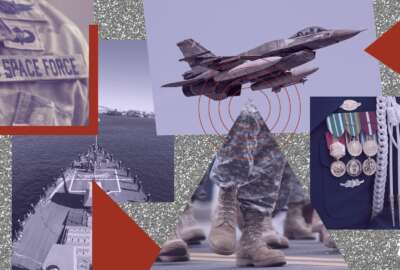The White House officially got the ball rolling on the 14th Quadrennial Review of Military Compensation (QRMC) Jan. 31, with a mandate look at whether service members are paid enough in current economic conditions. The memorandum directs the Secretary of Defense to complete the review within two years.
The memo said the review should “determine how a shift toward dual-income households and the unique factors affecting military household incomes might require structural changes.”
Among issues under consideration by the review are how military spouse unemployment affects families, as well as the effects of frequent military moves and geographic separations between service members and their spouses and childcare concerns.
The review will also look at current methods of calculating housing and cost-of-living allowances, including the Basic Needs Allowance (BNA). The Pentagon began the BNA program in January 2023 as a monthly allowance for active duty service members with dependents who complete initial training and whose gross household income falls below 130% of federal poverty guidelines.
That analysis must be submitted with the review “to ensure service members are food secure and able to procure suitable housing,” said the memo.
The request to look into living costs comes as the Congress gave military members a 12% increase in Basic Allowance for Housing (BAH) beginning January 2023. The Pentagon raised the BAH on a temporary basis starting in October 2022 through the end of the year to combat inflation and rising rental costs for service members. BAH is a calculation based on the price of housing in different geographic locations.
While the compensation reviews are intended to come out every four years, they often take much longer. The DoD completed the 13th QRMC in December 2020, 71 months after the previous QRMC report. The last review considered the option of radically changing military pay from the existing system of base pay with tax-free allowances to a civilian-like salary system without the extra benefits. In the end, the review did not recommend changing the current standards for compensation.
The last review also looked at food insecurity by reviewing the use of the Supplemental Nutrition Assistance Program (SNAP) among service members. It concluded that somewhere between 880 and 4,690 military members used the food assistance program, and that the rate of use was lower than civilians, so no action needed to be taken.
A report from Military Officers Association of America in January 2021 questioned that conclusion. It said the reporting was faulty and didn’t line up with other studies. The 13th QRMC only looked at two months of SNAP usage, and failed to get data from some of the military’s highest cost living areas, including California, Hawaii, Virginia and the District of Columbia.
“The QRMC left MOAA with more questions on food insecurity in the military than answers,” said the association’s report.
MOAA recommended the DoD collect better data in the future and re-evaluate implementing a BNA, a step the department implemented this year.
Copyright
© 2024 Federal News Network. All rights reserved. This website is not intended for users located within the European Economic Area.

